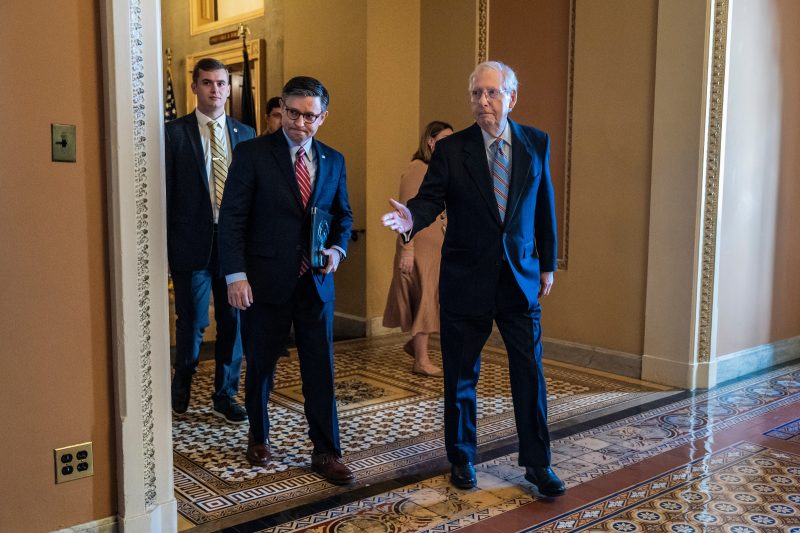
Rising Challenges for the House GOP Over Immigration Bill: An Unfolding Dilemma!
As the debate over immigration continues to take center stage in American politics, the House GOP finds itself in an increasingly complicated quandary. Navigating this rocky and stormy political landscape has proven difficult, due to the diverse perspectives within the party’s ranks, shifting public sentiment, and the broader socio-economic implications of potential changes to immigration policy.
Firstly, the vast array of perspectives within the Republican party adds an inherent complexity to the situation. A section of the party, primarily the more conservative faction, advocates for a stringent approach towards immigration. They argue for stronger border control, stricter enforcement of current immigration laws, and a minimal tolerance policy towards undocumented immigrants. On the other end, there are moderate Republicans who sympathize with the trials of immigrants and argue for a more compassionate approach concerning reforms to the immigration system.
A visible manifestation of this dilemma was seen during the discussions on a comprehensive immigration bill. Hardliners within the party met the bill, which included a path to citizenship for undocumented immigrants, with staunch resistance. However, a sizable population within the party appreciates the need for a balanced approach that addresses the question of undocumented immigrants, which numbers approximately 11 million people. This dichotomy within the party threatens to cause a divide, making it difficult to present a unified stance on immigration reforms.
Secondly, public sentiment about immigration is shifting, making the House GOP’s decision-making all the more difficult. The American community is increasingly acknowledging the essential role immigrants play in the nation’s economy and social fabric. Bipartisan studies have demonstrated that immigrants significantly contribute to the US economy, both as consumers and as workers in various industries. Therefore, a harsh stance towards immigration could potentially harm not only the economy but also the party’s public perception.
Additionally, there’s the pressing issue of ‘Dreamers,’ young people brought to the U.S. as children by undocumented immigrant parents. The public largely supports provisions for these individuals to have a path to citizenship. Any legislation that the House GOP brings forth must consider this standpoint, or else it runs the risk of a public backlash.
The socioeconomic implications of potential changes to immigration policy serve as a third major influencing factor on the GOP’s decision-making process. Various industries in the United States, such as agriculture, construction, and service, heavily depend on immigrant labor. Any drastic alterations to immigration policies could have potentially damaging effects on these industries. Therefore, the House GOP must tread carefully to prevent any unintended negative consequences on the nation’s economy.
In sum,
